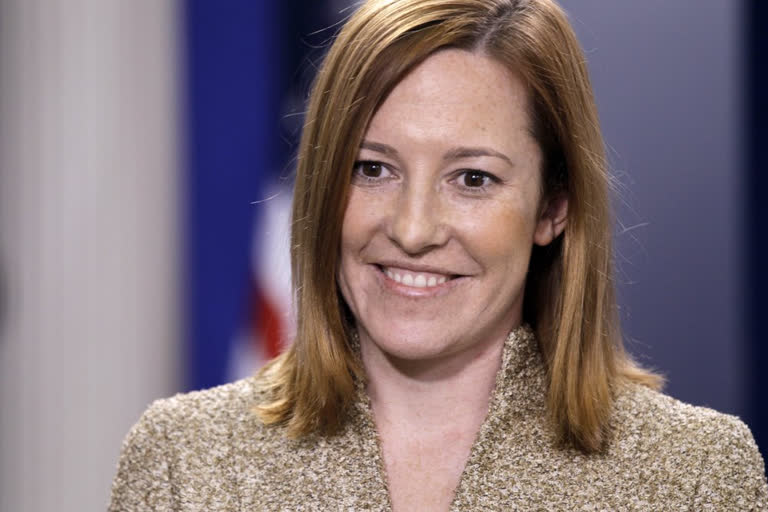Washington: After four years of President Donald Trump serving as his own chief spokesperson and frequently peddling false information and conspiracy theories in the process, successor Joe Biden is pledging to return to a more traditional approach to communicating with Americans.
Much of that work will fall to Jen Psaki, Biden’s pick for White House press secretary. She’s a veteran communications staffer who has worked on many top Democratic campaigns and held leading roles under President Barack Obama, including deputy press secretary and White House communications director, as well as spokesperson for the State Department.
“This job becomes one of the most recognizable people representing both the administration and the government writ large,” said Robert Gibbs, a former Obama press secretary. “She’ll be recognized when she travels overseas. She’ll be recognized when she goes to the grocery store.”
Trump went through four press secretaries and often preferred to engage directly with the electorate, tweeting at all hours or holding his own press briefings — especially at the start of the coronavirus pandemic. Both the president and his media team were frequently at odds with White House reporters while routinely spreading falsehoods.
Read:|Indian origin woman appointed Jill Biden's policy director
One of Trump’s press secretaries, Stephanie Grisham, never held a single briefing during her tenure. His most recent choice, Kayleigh McEnany, has used her sporadic briefings to scold reporters on their choice of questions, lecture them about the content of their stories, and reinforce baseless claims by the president.
Biden has promised to restore daily press briefings, and Psaki says she views the core of her new job as seeking to rebuild trust in government, especially during the pandemic.
“It’s difficult to imagine now how different this is going to be in a couple of months,” said Stuart Stevens, chief strategist for Republican Mitt Romney’s 2012 presidential campaign when Psaki was press secretary for Obama’s reelection campaign.
Stevens, a fierce Trump critic, said that after Inauguration Day on Jan. 20, White House communications staffers won’t be “graded upon their willingness to lie for the president.”
Former Obama chief of staff Denis McDonough remembered Psaki once coming into his office and “pushing back quite strongly” on a policy point, seeking to get “answers that she knew she would be asked about.” He said the exchange simultaneously annoyed and impressed him.
“She was not a passive participant who was just taking messaging to pass along,” McDonough said.
Still, simply returning to the way things were during the Obama administration is not something all journalists are looking forward to. While its relationship with the press was not as combative as the current administration’s, the Obama White House tightly controlled access to information, was obstructionist on many Freedom of Information Act requests and offered an aggressive spin on key events.
It also used the 1917 Espionage Act in unprecedented ways, prosecuting more people for leaking sensitive information to the public than all previous presidents combined.
Harold Holzer, a onetime congressional press secretary and author of the book “The Presidents and the Press,” said many White House journalists “were horrified by their treatment in the Obama administration.”
“They were being told to consult the White House website for answers to their questions, Obama never showed up ... unless it was to go give a cupcake on someone’s birthday, he didn’t answer FOIA requests,” Holzer said.
Read:|Indian-American to head Biden inauguration event
Psaki has already led calls with reporters to discuss the progress of Biden’s transition to the White House, though those haven’t come daily. Biden, meanwhile, has held only two formal press conferences since Election Day. Trump went weeks after his victory in 2016 without convening a press conference, but his team did provide daily updates by phone to reporters.
